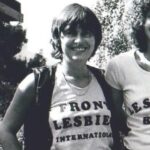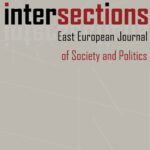Lucile Dreidemy, Johannes Knierzinger, David Mayer, and Clemens Pfeffer; Univ. of Vienna (Web)
Proposals by: 15.03.2023
In the last three decades, the place of Europe and the ‚West‘ in global historiography has been fundamentally redefined: most importantly, a growing number of accounts by non-Western scholars has questioned Western historiography by arguing that Europe’s global rise occurred much later and was more uneven than previously assumed, and that Europe was and remains only one of several global centres. Moreover, these critiques have also helped to rethink the intellectual foundations of the Enlightenment itself as a “co-production” of thinkers from all world regions and especially from colonised regions. However, anti-colonial intellectuals such as Poma de Ayala (Inca Empire), Kandiaronk (Petun/North America), Jean Louis Vastey (Haiti), José Rizal (Philippines) or Edward Wilmot Blyden (Liberia), have so far hardly gained any visibility in European historiography, and even less in school curricula.
With this commented anthology of primary texts, the editors seek to contribute to the above mentioned turning points in global historiography. The editors invite historians to identify anti-colonial primary texts and to propose commentaries. These primary texts should preferably come from authors who were themselves, in one way or another, confronted with practices of colonisation. In particular, the editors are looking for accounts by intellectuals, politicians and others that not only document colonial exploitation but also criticise the practices, institutions, and ideas of colonialism. In addition, they encourage the presentation of cases of colonisation at close range, e.g. within the geographical area of ‚Europe‘. Based on the current state of research, they propose a broad understanding of colonialism defined as the coercive incorporation into an expansionist state that involves not only physical violence but also ideological and administrative consolidation of rule. Read more and source … (Web).
The first of two volumes will focus on texts that were written up to the end of WWI.
 Josephinum – Medizinhistorisches Museum Wien (Web)
Josephinum – Medizinhistorisches Museum Wien (Web)
 Univ. of California – Berkeley; Ty Blakeney, William M. Burton, Ilana Eloit, Carolina Topini, and Agnès Vannouvong
Univ. of California – Berkeley; Ty Blakeney, William M. Burton, Ilana Eloit, Carolina Topini, and Agnès Vannouvong  Intersections. East European Journal of Society and Politics (IEEJSP); Maria Mayerchyk, Greifswald Univ. and Jennifer Ramme, European Univ. Viadrina
Intersections. East European Journal of Society and Politics (IEEJSP); Maria Mayerchyk, Greifswald Univ. and Jennifer Ramme, European Univ. Viadrina  Didactica Historica
Didactica Historica